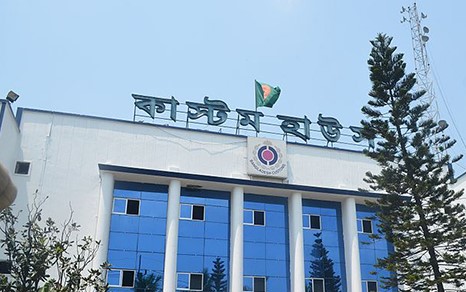Local expertise
With good knowledge of rules, regulations, and laws of country, port ,customs within a country, enables JAR WORLD LOGISTICS to speed up in customs clearance which is very important to a shipper exporting and importing goods.
Customs Clearance
Customs Clearance in Bangladesh is a key step for multinational firms. Bangladesh Customs is in charge of ensuring that all items entering or departing the nation adhere to the government’s regulatory standards and processes. Obtaining import and export licenses, customs valuation, classification, and paperwork, paying taxes and fees, and filing customs reports are all part of the customs clearing procedure in Bangladesh. Pre-arrival processes, inspection and release of products, and post-clearance audits are all included.
Chittagong, Mongla, Benapole, and Dhaka International Airport are among the customs ports in Bangladesh. These ports play an important role in promoting international trade and handle a large number of products each year.
The types of goods that can be imported and exported in Bangladesh include textiles, garments, pharmaceuticals, leather, and jute products.
Businesses may take various extra actions, in addition to hiring a clearing and forwarding company, to guarantee seamless customs clearance in Bangladesh. Investing in technology to speed up customs operations, completing due diligence on suppliers and customers, and keeping correct and full customs clearance documentation are just a few examples. Businesses may lessen the likelihood of delays and other issues during the customs clearance process by following these actions.
The taxes and fees levied by the customs officials are another essential part of customs clearance in Bangladesh. Customs Duties, Value-Added Tax (VAT), Advance Income Tax (AIT), and other taxes are among them. Businesses must comprehend these taxes and levies and figure them into their import and export expenses. Noncompliance with tax and fee obligations can result in fines and other legal repercussions.
Finally, customs clearance in Bangladesh is critical for promoting commerce, safeguarding the economy, and maintaining security. The Bangladesh Customs Department supervises the process and ensures that customs procedures, duties, and taxes are followed. The continuing strengthening of the customs clearance system will be critical to Bangladesh’s economic success and progress, as well as the prosperity of its people.
Streamlining Customs Clearance in Bangladesh: The Role of C&F Agents
Customs clearance is a crucial process in international trade that involves complying with various legal and regulatory requirements for the import and export of goods. However, the emergence of professional Customs & Forwarding (C&F) agents has played a significant role in streamlining the customs clearance process. Among these agents, JAR Group has established itself as a reliable and efficient partner for businesses seeking smooth customs clearance in Bangladesh.
Our freight forwarding experts JAR WORLD LOGISTICS explain customs clearance process and offer their tips to avoid costly delays of your international shipments.

Import Requirements and Documentation
In general, documents required for importation include a letter of credit authorization form, a bill of lading or airway bill, commercial invoice or packing list, and a certificate of origin. For certain imported items or services additional certifications or import permits related to health, security, or other matters are required by the relevant government agencies. Reduced documentation requirements apply for the public sector.
Bangladesh imposes registration requirements on commercial importers and private industrial consumers. In some cases, the registrations specify the maximum dollar values of imports. Commercial importers are defined as those who import goods for sale without further processing. Private industrial consumers are units registered with one of four sponsoring agencies: the Bangladesh Export Processing Zones Authority (BEPZA), for industries located in Export Processing Zones (EPZs); the Bangladesh Small and Cottage Industries Corporation (BSCIC) at (bscic.gov.bd), for small and medium-sized enterprises; the Bangladesh Handloom Board at (bhb.gov.bd), for handloom industries run by weavers’ associations engaged in preserving classical Bangladeshi weaving techniques; and the Bangladesh Investment Development Board (BIDA), for all other private industries.
Commercial importers and private industrial consumers (with the exception of those located in EPZs) must register with the Chief Controller of Imports and Exports (CCIE) at (ccie.gov.bd) within the Ministry of Commerce, who issues import registration certificates (IRC). An IRC is generally issued within three working days of receipt of the application. Commercial importers are free to import any quantity of non-restricted items. For industrial consumers, the IRC specifies the maximum value (the “import entitlement”) for each product that the industrial consumer may import each year, including items on the restricted list of imports. The import entitlement is intended as a means to monitor imports of raw materials and machinery, most of which enter Bangladesh at concessional duty rates.
